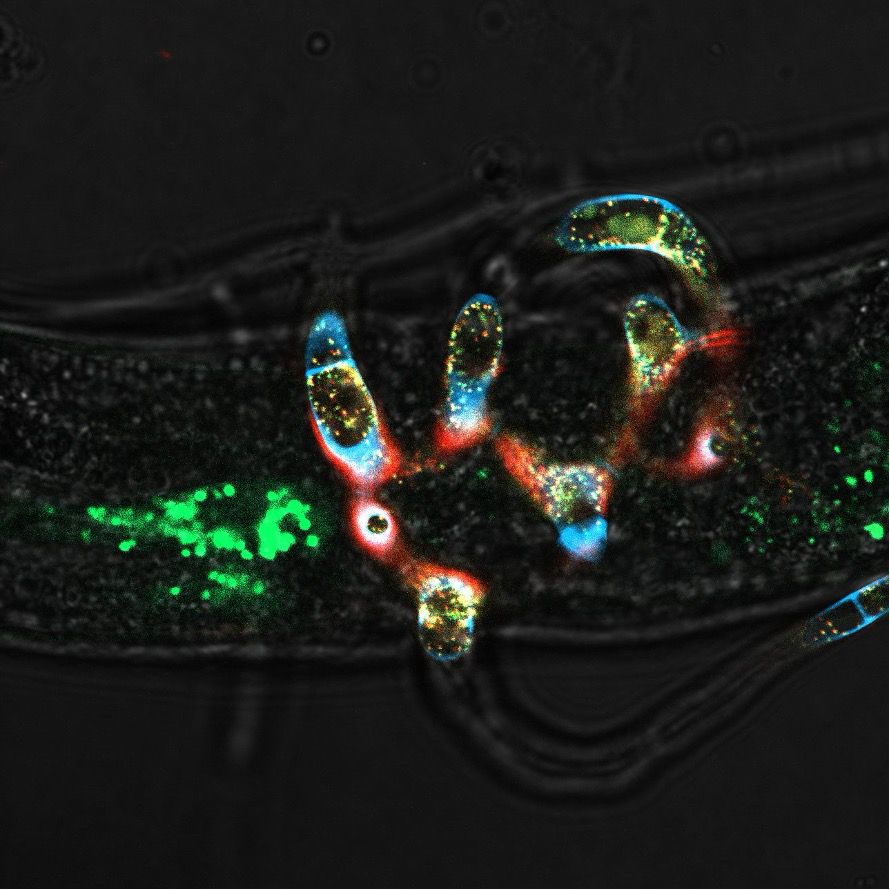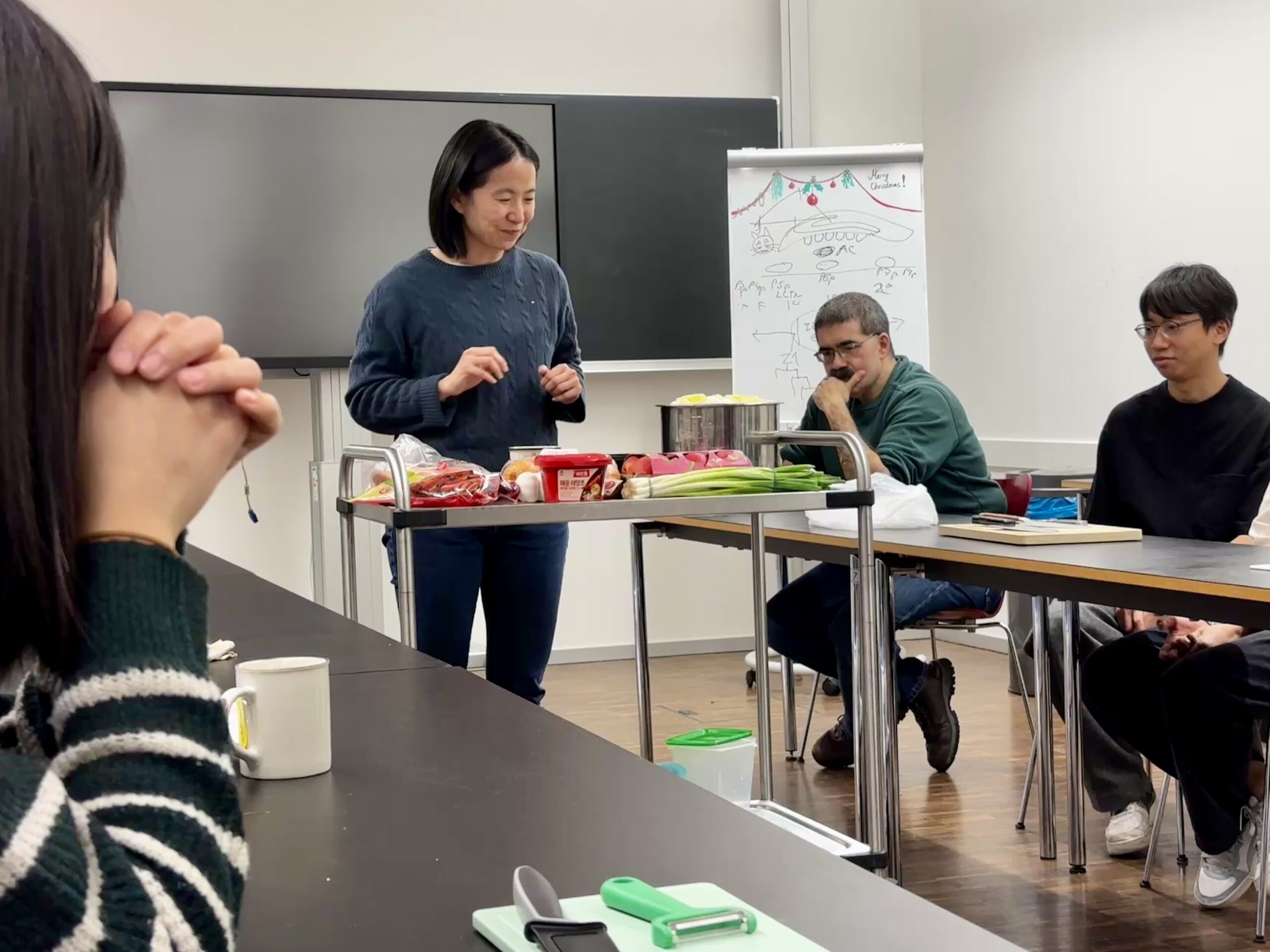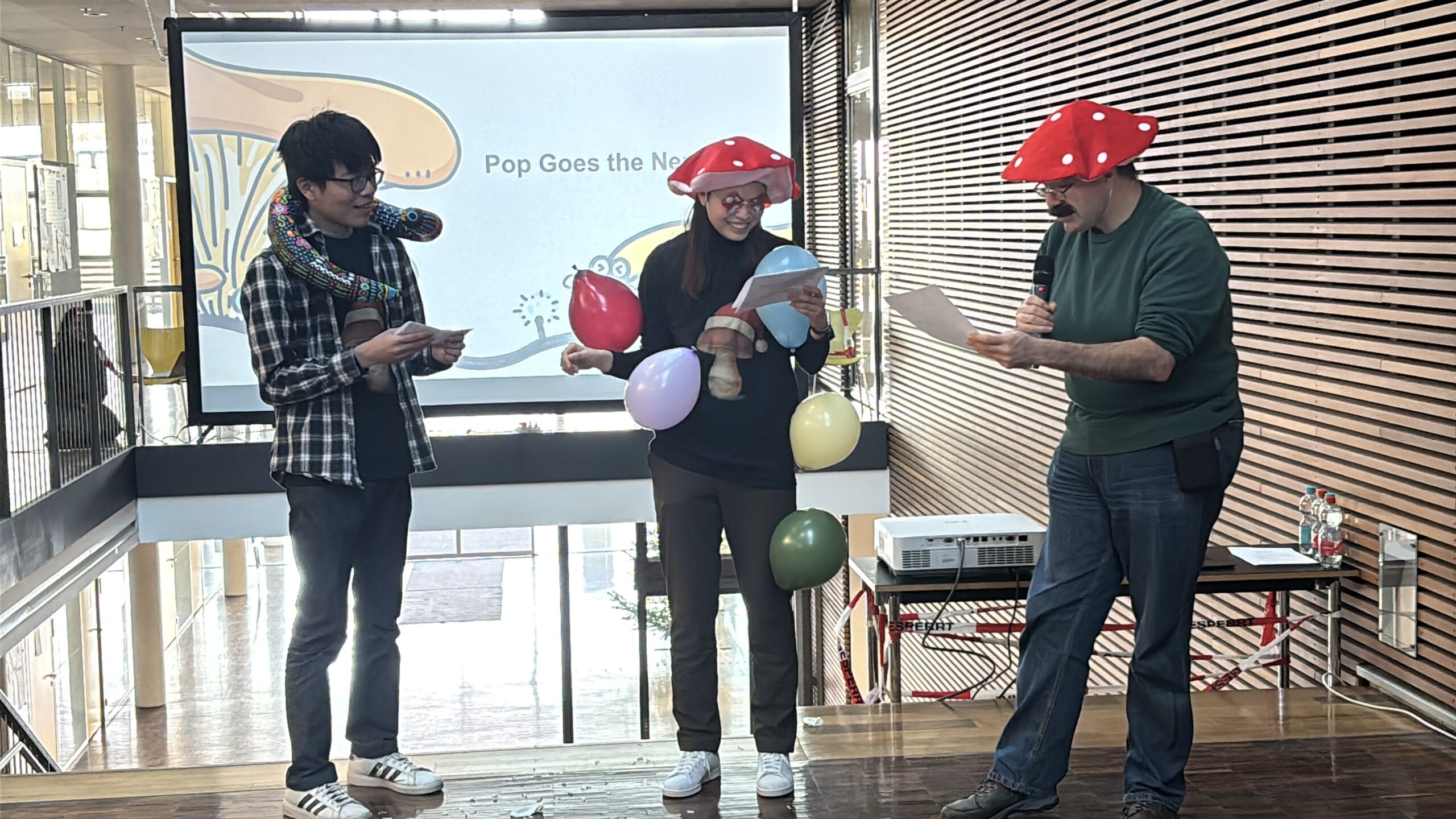The Hsueh lab
The Hsueh lab investigates the molecular interactions and coevolution between C. elegans and the nematophagous fungi.
What are we interested in?
Nematodes are the most abundant animals on earth and many species are parasitic, causing diseases in human, animals and plants that result in more than a billion infections worldwide and more than USD$80 billions in crop loss annually. Drug resistance is an emerging problem, and hardy gastrointestinal nematodes displaying multidrug resistance to all three basic classes of anthelmintics (benzimidazoles, macrocyclic lactones and imidazothiazoles) have appeared in livestock around the world. Thus, new treatments or methods to control these parasites are urgently needed. In nature, nematodes exist in complex multitrophic communities. They rely on elaborate networks of chemical signaling to communicate with each other and engage interactions with a wide-variety of different organisms, including predators such as carnivorous fungi. Many fungi have independently evolved the ability to prey on nematodes to gain additional nutrients under starvation. The predator-prey relationship between nematophagous fungi and nematodes makes them an ideal system to study inter-species communication and predator-prey co-evolution. We have established molecular and genetic tools to study the molecular interactions between the nematode-trapping fungus Arthrobotrys oligospora and the oyster mushroom Pleurotus ostreatus with the model nematode C. elegans.
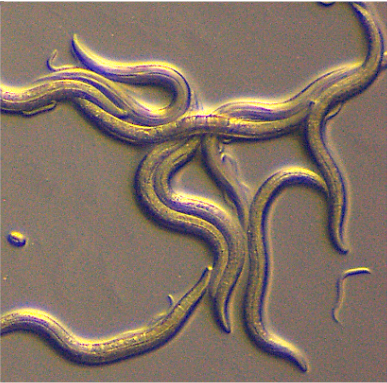
C. elegans
What are signals produced by nematodes that can be recognized by fungi? How does C. elegans evolve and adapt to fungal predation? Does C. elegans learn in response to predation?
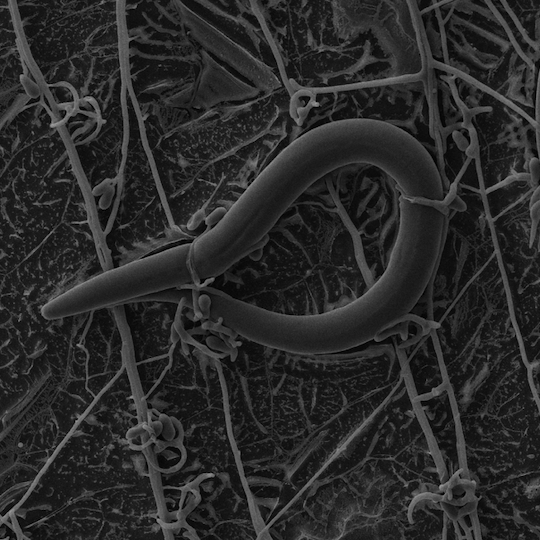
Arthrobotrys oligospora
How does nematode-trapping fungus sense nematodes and develop traps? What makes the traps sticky?
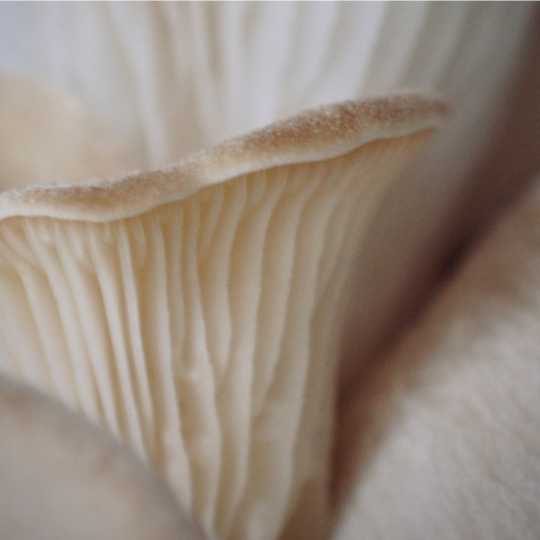
Pleurotus ostreatus
How does oyster mushroom paralyze the nematodes? What are the nematocidal compounds produced by Pleurotus mushrooms?
